NOTE: this was first posted May 17 2025 www.ministryaiandi.com For more also Part of this “WHO WAS JESUS UNDER?” Check there
PART 2 (SUBMISSION) JESUS & PAUL
FOLLOWING THE CALL FROM ABOVE
WHO WAS APOSTLE PAUL “UNDER?”
(Popular Ministry Inquiring Minds NEED to know!)
Let’s get down to the real nitty gritty!
(C)2025 Taveau D’Arcy, EORR Cross Body Unity International All copyrights reserved under international copyright laws, in conjunction with AI

Note please, that I, apostle Taveau D’Arcy can teach this… without the Chat GPT AI as I know my history and authority and Bible, (all my life)however, I want to be objective. Also, I intentionally ask, crafted, directed, also pointed long thought out, and Bible examined “Tough Questions” to probe the universe of web, to confirm or disprove the Apostolic Many Covering, Authority, and Biased, Maligning “theories”
Sincerely, Dr T
QUESTIONS?

PART ONE APOSTLE PAUL AND AUTHORITY:
Divine Commission vs. Human Submission
In a world where Christian leadership often emphasizes strict affiliation, submission to pastors, or hierarchical authority structures, the Apostle Paul’s example offers profound insight. Paul, one of the most influential figures in early Christianity, declared in Galatians 1:1-2 that his apostleship came “not from men nor through man, but through Jesus Christ and God the Father.” What does this mean for Paul’s relationship to authority? Was he under anyone, and how does this speak to church leadership today?
Paul’s Divine Commission: Not Under Human Authority
From the outset of his ministry, Paul stressed his direct calling from God. In Galatians 1:1, he uses the Greek phrase “ouk apo anthrōpōn, oude dia anthrōpou” meaning “not from men, nor through man,” emphasizing his authority was divine, bypassing traditional human chains of command.
Paul’s background underscores this divine appointment. Once a persecutor of the church (Acts 9), Paul encountered Jesus on the road to Damascus and was called by God Himself.
He did not seek approval from the original twelve apostles nor from Jerusalem leaders to begin his ministry. Instead, his authority came directly from Christ, making him a unique apostolic figure:
-
Acts 9:15 – The Lord says Paul is a “chosen instrument” to carry His name to the Gentiles, kings, and Israelites.
-
Galatians 1:11-12 – Paul emphasizes that the gospel he preached was received by revelation from Jesus Christ, not taught by human teachers.
Respectful Recognition, Not Submission to Other Apostles
Though Paul’s authority was independent, he maintained fellowship and mutual respect with other apostles:
-
Galatians 2:6-9 records a meeting with “pillars” of the church — Peter, James, and John — who recognized Paul’s mission and extended the “right hand of fellowship.”
-
This was a recognition of equal ministry, not hierarchical submission.
Paul’s stance was clear: while he cooperated and communicated with other church leaders, he was not “under” their authority but under Christ’s direct commission.
Reason: This was critical as he confronted false teachings and defended his gospel against Judaizers and others.
Paul’s Teaching on Submission to Authority
Paul’s letters also clarify where submission is appropriate:
-
Romans 13:1-7 teaches Christians to submit to civil authorities, recognizing that all authority comes from God.
-
In the church context, Paul encouraged respect for elders and leaders but never advocated blind submission to human leaders over obedience to God.
He modeled servant leadership rather than authoritarian rule:
-
1 Corinthians 4:14-21 shows Paul correcting the Corinthians as a loving spiritual father, not a domineering master.
-
Philippians 2:5-8 exhorts believers to adopt Christ’s humility, emphasizing servant leadership.
Paul’s Ministry Context: Leader in a Challenging Culture
Paul’s ministry to Ephesus and Asia Minor, including his work in a city famous for the worship of Diana/Artemis (Acts 19), positioned him as a leader transforming a diverse, multi-ethnic community. He preached the gospel of freedom in Christ — no longer Jew or Greek, male or female (Galatians 3:28), promoting unity and equality in the body of Christ (Ephesians 4:1-6).
This radical teaching challenged both pagan culture and established religious authority, highlighting the transformational nature of the Christian community.
What Can We Learn Today?
TD Apostolic Ministry Training Points
-
Authority in the Church Must Be Christ-Centered
Paul’s example reminds us that true apostolic authority is received from God, not conferred by human institutions or councils. -
While respect and fellowship among leaders are essential, ultimate submission is to Christ alone.
-
Submission Does Not Mean Subjugation
Respectful relationships within the church do not equate to hierarchical control or authoritarianism. -
Paul’s ministry model shows leadership rooted in humility, service, and mutual accountability.
-
Leadership Should Build Unity and Freedom
Paul’s teaching of unity in diversity (Ephesians 4) and freedom in Christ (Galatians 5) provides a blueprint for churches today to resist legalism, favoritism, and divisive authority. -
Authority Must Always Be Checked by Scripture and Spirit
Paul’s bold stance against false teachings, despite pressure from other leaders, teaches leaders and believers to test all authority by God’s word and Spirit, not merely by tradition or human decree.
Conclusion
Paul’s relationship with authority was unique and divinely ordained.
Fact: He was under no human authority but directly under Christ’s commission, respected fellow apostles, submitted to civil authorities where appropriate, and led with servant humility.
Point: His model challenges modern Christians to reconsider how authority and submission function in the church, always ensuring Christ’s lordship is paramount.
(TD admonishes “no devout celebrity cults” “elite tribes” “no private worship turfs” with their prone to “clubby’ division)

PART TWO: Paul’s Unique God-Revealed Authority
After the Twelve, His Background, and Independence from Human Confirmation
APOSTOLIC TAVEAU POINTS
1. Paul Came After the Selection of the Original First Twelve Apostles
-
The first 12 apostles were personally handpicked and mentored by Jesus Christ during His earthly ministry (Matthew 10:1-4; Mark 3:13-19).
-
They had direct, ongoing teaching and witnessed Jesus’ miracles, death, and resurrection firsthand.
-
Paul, however, came later—not part of this original group (Acts 1:21-26 shows Matthias replaces Judas).
2. Paul’s Background: From Persecutor to Apostle
-
Before his calling, Paul (then Saul) was a zealous persecutor of the early church; he actively sought to destroy Christians (Acts 8:1-3; 9:1-2).
-
His dramatic conversion on the road to Damascus (Acts 9:3-6) was a divine encounter—Jesus Himself revealed Paul’s mission and authority.
-
After conversion, Paul sought to serve the church, especially in Jerusalem, but he was initially not accepted by the original apostles (Galatians 1:13-24).
3. “God Revealed” Authority — Not Human-Granted
-
Paul insists his apostleship is not from human appointment but directly from Christ (Galatians 1:1).
-
He famously says, “I did not receive it from man, nor was I taught it, but it came through a revelation of Jesus Christ” (Galatians 1:12).
-
This sets Paul apart from other leaders who might claim authority through human ordination or lineage.
4. Not Wanting or Needing Human Approval
-
Paul was eager to help the Jerusalem church but met skepticism and rejection (Galatians 2:1-2).
-
He even did not confer with “flesh and blood” (Galatians 1:16) — meaning he did not seek human endorsement before preaching the gospel.
-
His authority and message came straight from God’s revelation and commission.
5. Freedom to Hear and Obey God Directly
-
Paul’s example models what Philippians 2:12 means about “working out your own salvation with fear and trembling”—a personal, reverent responsibility before God.
-
He demonstrates that a believer’s primary submission is to God’s revealed will, not merely to human leaders or systems.
-
This is freedom grounded in accountability, not license to disobey authority, but a reminder that human authority is always secondary and derivative.
6. Application to Modern Church Leadership
-
Like Paul, many modern Christian leaders and believers may feel called or led by God directly, without formal human commissioning or approval.
-
This does not negate the value of church structure, but it challenges the notion that spiritual authority must always be mediated by human leaders.
-
Paul’s story warns against rigid hierarchies that reject or suppress God’s work simply because it does not conform to established human systems.
-
It encourages openness to Spirit-led ministry that might come from unexpected places or people.
-
True authority in the church flows from God’s revelation and calling, validated by fruit and obedience, not only by titles or human endorsement.
7. Key Scriptures to Reflect On
-
Acts 9:1-19 — Paul’s conversion and calling.
-
Galatians 1:11-24 — Paul’s defense of his divine commission.
-
Galatians 2:1-2 — Paul’s interaction with Jerusalem leaders.
-
Philippians 2:12-13 — Working out salvation reverently.
-
1 Corinthians 9:1-2 — Paul’s claim of apostleship not from men but by Christ’s revelation.
8. Summary
Paul’s apostolic authority was unique and God-revealed, setting him apart from the original Twelve and from leaders who gain authority through human ordination alone. Despite being rejected by some church leaders, Paul faithfully followed his divine commission, emphasizing personal submission to Christ above all.
This teaches the church today to balance respect for leadership with openness to God’s direct work in individuals, guarding against both authoritarianism and chaos, anchoring authority in Scripture, revelation, and Christ’s lordship.
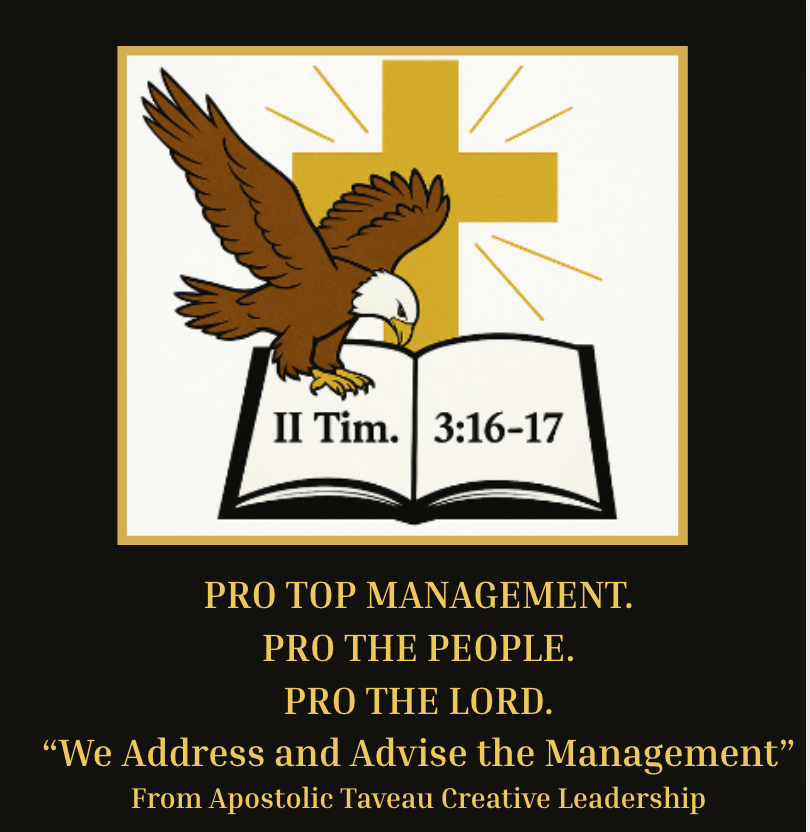
PART THREE PAULINE OFFICE PORTRAYALS
(which are Dr Taveau’s offices, too)
Paul’s Apostolic Office in Galatians 1:1-2:
In Galatians 1:1-2, Paul writes, “Paul, an apostle—not from men nor through man, but through Jesus Christ and God the Father, who raised Him from the dead—And all the brethren who are with me, to the churches of Galatia.”
Here, Paul emphasizes that his apostleship is not a title granted by human authority or institutions, but rather, it is a divine calling from Jesus Christ. This sets a profound tone about the nature of his ministry: it was not self-appointed or self-seeking, but birthed out of God’s will.
Paul’s emphasis on divine calling over human recognition reflects his broader attitude toward his role.
Note: He was a servant leader who did not seek the approval or praise of people.
His letter to the Galatians, like many of his letters, was not to defend his reputation but to clarify the gospel and the true authority behind it.
Paul in Acts 17:17: Engaging in the Public Square:
Acts 17:17 from the King James Version (KJV):
“Therefore disputed he in the synagogue with the Jews, and with the devout persons, and in the market daily with them that met with him.” — Acts 17:17 KJV
This verse highlights Paul’s public reasoning and open dialogue with both religious and non-religious audiences — in the synagogue and in the marketplace — exemplifying his role as a bold, Spirit-led apostle engaging the culture head-on.
In Acts 17:17, Paul engages in public discourse in Athens, an intellectual and cultural hub of the time. He goes into the synagogue and the marketplace, discussing and debating with philosophers, both Epicureans and Stoics.
This was a significant public platform, and we might consider it a “mega-ministry” moment. Yet, in Paul’s mind, this was not about drawing crowds or building a personal empire.
He was not interested in becoming a “celebrity preacher,” but rather, he was faithful to the mission of spreading the gospel, even if it meant facing ridicule and rejection.
Paul’s behavior in this setting demonstrates his willingness to interact with and challenge the cultural leaders of the time, not for personal fame, but to glorify God and bring the message of Christ to those who were lost.
In the modern context, this could be compared to Christian leaders engaging with public platforms, yet Paul’s humble approach underscores the difference between using influence for the gospel and using it for self-promotion.
Paul’s Self-Perception: “Dung” and “Offscouring” (Philippians 3:8):
Philippians 3:8 from the King James Version (KJV):
“Yea doubtless, and I count all things but loss for the excellency of the knowledge of Christ Jesus my Lord: for whom I have suffered the loss of all things, and do count them but dung, that I may win Christ,”
— Philippians 3:8 KJV
This verse reflects Paul’s total surrender of status, reputation, and worldly gain for the surpassing value of knowing Christ.
Despite the significance of his ministry, Paul’s self-view was far from the image of a celebrity or public figure that we might associate with modern mega-ministers. In Philippians 3:8, Paul writes, “Yet indeed I also count all things loss for the excellence of the knowledge of Christ Jesus my Lord, for whom I have suffered the loss of all things, and count them as rubbish, that I may gain Christ.”
The word “rubbish” here is often translated as “dung” or “offscouring,” which implies that Paul considered anything—whether achievements, accolades, or worldly recognition—as worthless compared to knowing Christ.
This starkly contrasts with the modern Christian celebrity culture that often seeks validation through recognition and popularity. While many modern leaders may see their fame as a sign of success, Paul viewed everything in light of eternity and the supreme value of knowing Christ. His humility and deep sense of his own unworthiness before God led him to reject any notion of glory or fame in the earthly sense.
Paul’s self-image was rooted in his awareness of his unworthiness and his calling to serve Christ, even to the point of suffering. His apostolic authority did not come from his charisma, his public ministry, or his ability to attract crowds, but from God’s calling and the grace extended to him.

PART FOUR: PAUL IN APOSTOLIC HISTORY VS NOW IN MEDIA TIMES
Modern Day: How We View Paul Now.. Through the Lens of Media:
Today, Paul’s life and ministry are often presented through the lens of media and historical accounts, sometimes elevating him to the status of a “Christian hero” or a “mega-ministry” figure. His writings have shaped much of Christian doctrine, and his missionary work is celebrated across denominations. Modern media outlets, churches, and even books present Paul as a towering figure, often focusing on his accomplishments and his vast influence on the spread of Christianity.
However, when we view Paul through the eyes of TV and media, we risk distorting the very heart of his ministry. Modern representations of Paul often emphasize his authority, his theological insights, and his role as a foundational leader in the Church, which are all valid and important aspects of his legacy.
*** But if we do not remember Paul’s own self-awareness of his unworthiness, we miss the profound humility that characterized his life and ministry.
Unlike today’s Christian media culture, which sometimes elevates ministers to celebrity status, Paul’s perspective was grounded in servanthood.
His success, in his eyes, was not in how many people followed him or how many churches he planted, but in his obedience to Christ and his willingness to suffer for the sake of the gospel.
Conclusion:
The apostle Paul’s view of himself, as expressed in his letters and actions, stands in stark contrast to the modern view of Christian leadership through the lens of media and celebrity culture. While Paul’s influence was immense, his view of ministry was not about building a personal brand or securing a legacy. Instead, he viewed his calling as an apostle with humility, constantly pointing to Christ as the source of his authority and purpose.
In our modern context, as Christian leaders, we must guard against the temptation to embrace a celebrity mindset, remembering that true leadership in the kingdom of God is rooted in servanthood, humility, and a willingness to suffer for the sake of Christ. As we engage with media, platforms, and public spaces, may we follow Paul’s example of pointing to Christ rather than to ourselves, knowing that any recognition we receive is ultimately a gift from God, to be used for His glory, not our own.
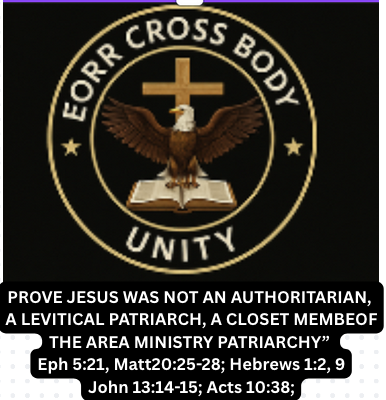
PART FIVE: AND WHO WAS PAUL “UNDER?”
Review:
Theology, First-Century Church History, and Contemporary Application
1. Paul’s Statement on Authority and Submission
Paul says in Galatians 1:1 that he was “not sent from men nor by a man”, implying he was not under human authority as an apostle. Yet, Paul acknowledges submission in other ways:
-
He recognized the authority of Christ alone (Acts 9:4-6; 1 Corinthians 11:1).
-
He respected the Jerusalem apostles as brothers but did not submit to them as his human superiors (Galatians 2:6-9).
-
He practiced accountability to the gospel and churches but not authoritarian control by men.
2. Theological Meaning of “Being Under”
a) Divine vs. Human Authority
-
Paul’s ultimate authority was Christ. His apostolic commission came directly from the resurrected Lord (Galatians 1:12).
-
Being “under” authority means different things:
-
Under God’s authority: Submission to Christ as Head of the Church.
-
Under human authority: Submission to local pastors or apostles, which Paul does not affirm as a source of his commissioning or gospel message.
-
b) Submission vs. Servanthood
-
Paul models servant leadership (Philippians 2:5-8), not authoritarian submission.
-
Submission is biblical but always under Christ’s lordship and for edification, not for control or domination (Ephesians 5:21).
3. Historical First-Century Church Context
a) Early Church Structure Was Fluid
-
The New Testament church was mostly house churches with elders, overseers (bishops), and deacons (Acts 14:23; Titus 1:5).
-
Leadership was relational, spiritual, and functional, not hierarchical bureaucracy.
-
Apostles like Paul and Peter functioned as itinerant messengers with divine authority, not as controlling bosses over local congregations.
b) Paul’s Relationship to Jerusalem Apostles
-
At the Jerusalem Council (Acts 15), Paul and Barnabas consulted apostles like James but were not under them in a hierarchical sense (Galatians 2:6-9).
-
The early church recognized apostolic equality rather than a chain of command.
c) Submission Was Communal, Not Top-Down
-
Paul exhorts mutual submission (Ephesians 5:21) and elders to shepherd willingly, not as lords over the flock (1 Peter 5:2-3).
-
No biblical evidence Paul submitted to any governing apostle or pastor as a controlling authority.
4. Theological Implications for Church Leadership Today
a) Submission Is to Christ First and Foremost
-
Christians and leaders submit ultimately to Christ, the Head of the Church (Colossians 1:18).
-
Human leaders function as servants and stewards under Christ, not as overlords (Mark 10:42-45).
b) Authority Is Gifted, Not Claimed by Hierarchy
-
Spiritual authority flows from gifts given by Christ (Ephesians 4:11-13).
-
Human structures should facilitate growth, unity, and accountability—not control or coercion.
c) Warning Against Authoritarianism
-
Rigid demands for submission to a local pastor or “governing apostle” can easily lead to abuse of power, control, and legalism.
-
Paul’s example teaches discernment: leaders should be tested by Scripture, fruit, and humility (1 Timothy 3; Titus 1).
d) Accountability Without Domination
-
Healthy leadership includes accountability but must preserve freedom in Christ.
-
Paul’s independence in Galatians models balance between divine commission and relational accountability.
5. Summary: Who Was Paul Under?
| Aspect | Paul’s Position | Modern Application |
|---|---|---|
| Authority Source | Christ directly, not human leaders | Leaders’ authority is ultimately from God, not human hierarchy |
| Submission | To Christ as Head; mutual respect with other apostles | Submission to leaders is under Christ, not blind obedience |
| Leadership Style | Servant leadership, not authoritarian control | Leaders must serve, not dominate |
| Relationship to Church | Accountable to churches, not controlled by them | Leaders and members should foster accountability, not control |
| Apostolic Equality | Apostles were brothers, not bosses | Church governance should avoid rigid hierarchies |

PART SIX: HIS EGO AND HUMANITY
Taveau says, Let’s look at how “He who compares himself with another is not wise” and Paul’s determination to know “Christ and Him crucified” directly confront and dismantle the modern ministry culture of competition, wannabeism, celebrity chasing, and FOMO.
1. “He who compares himself…” — 2 Corinthians 10:12 (KJV)
“For we dare not make ourselves of the number, or compare ourselves with some that commend themselves: but they measuring themselves by themselves, and comparing themselves among themselves, are not wise.”
— 2 Corinthians 10:12, KJV
Meaning in Context:
Paul is confronting spiritual elitism and the measuring of one’s success by human standards rather than by God’s call and grace.
Applies To:
-
Ministry competition
-
“Keeping up with the Joneses” spirit
-
Measuring ministry “fruit” by size, fame, followers
Greek Key Words:
-
Sugkrinontes (συγκρίνοντες) – comparing, contrasting
-
Asunetoi (ἀσύνετοι) – without understanding, foolish, lacking spiritual discernment
This rebukes the performance mindset: “If they have a conference, we must.” “If they dress that way, we will too.”
Wisdom is lost when we seek ministry identity through comparison, not calling
2. “I determined not to know any thing among you…” — 1 Corinthians 2:2 (KJV)
“For I determined not to know any thing among you, save Jesus Christ, and him crucified.”
— 1 Corinthians 2:2, KJV
Paul’s Approach:
-
Intentional disregard for personal trivia, status, or reputation
-
Focused solely on Christ-centered ministry, not the “brand” of Paul
In Contrast To:
-
Gossip-based discernment
-
Competitive “name-dropping” spirituality
-
FOMO , rivalry, even against the local and or “big-name” speaker. and mighty mega ministries
Greek Key Words:
-
Ekrina (ἔκρινα) – I resolved, I judged as best
-
Iēsoun Christon kai touton estaurōmenon – Jesus Christ and Him crucified
Apostolic Leadership Message:
Real apostles and leaders are not brand chasers, they are Christ crucified bearers—rejecting showmanship and self-promotion.
3. Connecting These to Modern Ministry Trends:
| Trend | Rebuked by Scripture |
|---|---|
| Comparison culture | 2 Cor. 10:12 — It’s unwise, leads to vanity and pride |
| Wannabeism / Fame-seeking | 1 Cor. 2:2 — True leaders die to self, live to preach Christ alone |
| FOMO & image-based leadership | Luke 14:11 — “He that exalteth himself shall be abased…” |
| Ministry cliques / exclusion | James 2:1 — No respecter of persons in Christ |
| “Elite” Mega-systems | 1 Cor. 1:27-29 — God chooses the weak to confound the mighty |
Pauline Perspective Super Star? Or Abiding Servant?
His Apostolic Office in Galatians 1:1-2 and Acts 17:17 vs. Modern Media Presentation
We can conclude:
The apostle Paul was one of the most influential figures in the early Christian church, but his view of himself was radically different from the modern concept of a “mega ministry” leader. In Galatians 1:1-2, Paul introduces himself as an apostle, not by human appointment, but by the will of God. In Acts 17:17, we see him engaging in the public square, debating in the marketplaces of Athens, which was a very public and influential platform.
- Despite this, Paul’s self-perception was far from one of self-promotion, fame, or celebrity. Rather, he viewed himself in the most humble terms, referring to himself as “dung” or “offscouring” (Philippians 3:8), demonstrating the contrast between his apostolic humility and the way modern media might depict a well-known Christian leader.




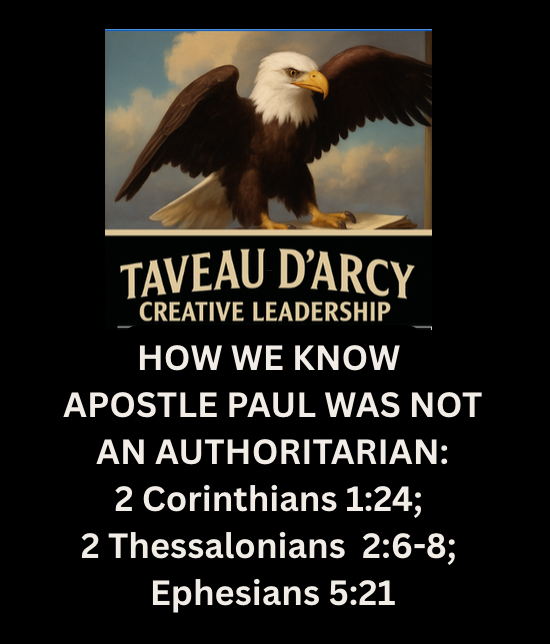


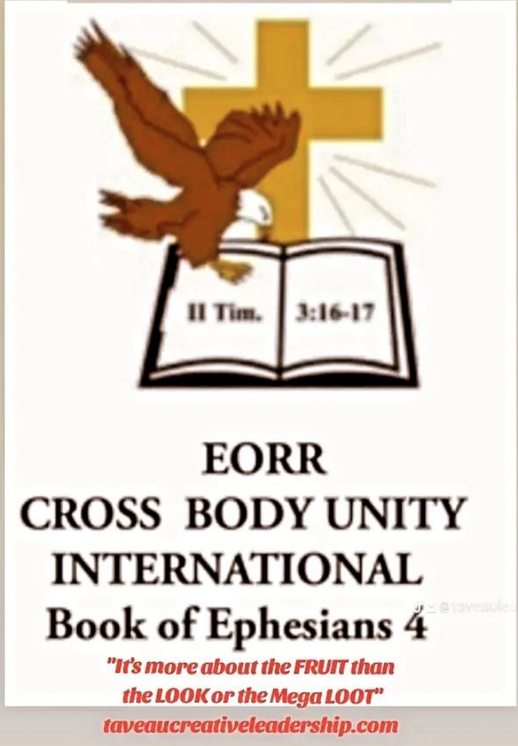



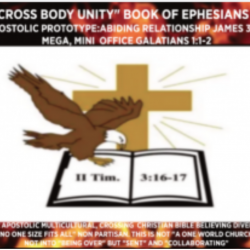

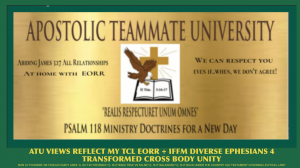
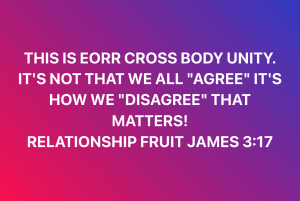
Recent Comments